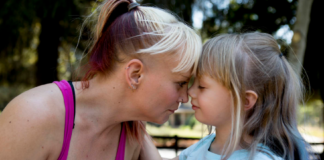Tag: Childhood Adversity/Trauma
What I Wish I’d Asked Dr. Gabor Maté When I Had...
Does my complex PTSD, depression and rage go back farther than I think? Back to the womb and my earliest days of life? Is that even possible?
Interview: Abuse and Neglect at Private “Troubled Teen” Centers
Parents, beware: Disability rights lawyer Diane Smith Howard shares disturbing findings on conditions at youth residential treatment facilities.
The Real Myth of the Schizophrenogenic Mother
Acknowledging the role of trauma inflicted by a given individual’s mother is not the same as laying all blame for “mental illness” at the feet of motherhood. Meanwhile, a mountain of evidence has accumulated linking schizophrenia to sexual, physical, and emotional abuse and many other categories of adverse childhood experiences.
Adverse Childhood Experiences: When Will the Lessons of the ACE Study...
The ACE study tells of how adverse childhood experiences increase the risk of psychological and physical problems in adulthood. When will we start incorporating these findings into public health policy and medical care?
Why the ‘Psychological Injury Model’ Will Ultimately Triumph
The Psychological Injury model will triumph, not just because literally thousands of studies show how trauma and stressful life events result in mental health problems, but because at our core, we know it is true. People hurt people, and people heal people. This cracks the intellectual foundation of psychopharmacology.
Beating the Odds of Early Death Due to Childhood Trauma
From KQED News: "Emotional neglect, physical abuse, divorce, a household riven by addiction — science shows that traumas like these in childhood cause poorer...
Treating the Lifelong Harm of Childhood Trauma
From The New York Times: Dr. Nadine Burke Harris, who has emerged as one of the country's strongest voices calling for a national public health...
“The Overdiagnosis of ADHD”
The general theme, that various "mental illnesses" are being "overdiagnosed" is gaining popularity in recent years among some psychiatrists, presumably in an effort to distance themselves from the trend of psychiatric-drugs-on-demand-for-every-conceivable-human-problem that has become an escalating and undeniable feature of American psychiatric practice. But the implicit assumptions – that there is a correct level of such labeling, and that the label has some valid ontological significance – are emphatically false.
What Would a Trauma-Informed Society Look Like?
Imagine if we, as a society, started recognizing trauma, pain, grief, fear, the need for connection and understanding, and oppression without defensiveness or denial. What if, hypothetically, we saw the signs in people who were "defiant," "withdrawn," "oppositional," "depressed," "manic," or otherwise as desperate pleas to have their needs met, and stopped telling them they were sick for doing so? What would a society that actually encouraged expression of emotion, compassion, and empathy look like?
The Psychiatry Sandcastle Continues to Crumble
Psychiatry would long since have gone the way of phrenology and mesmerism but for the financial support it receives from the pharmaceutical industry. But the truth has a way of trickling out. Here are five recent stories that buck the psychiatry-friendly stance that has characterized the mainstream media for at least the past 50 years.
















